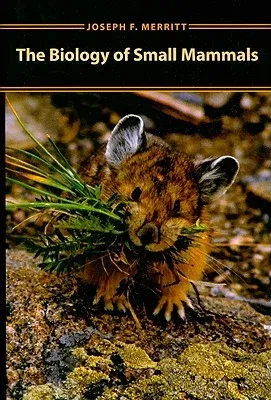2010 Outstanding Academic Title, Choice Magazine
The Biology of Small Mammals is the first exploration of the lives of
small mammals undertaken in decades. Mammalogist Joseph F. Merritt
offers an engaging, in-depth discussion about a diverse array of small
mammals, from the rare Kitti's hog-nosed bat of Southeast Asia to the
bizarre aye-aye of Madagascar to the familiar woodchuck of North
America.
Small mammals include those mammals weighing under five kilograms
(approximately eleven pounds). Merritt introduces the various species
that fall under this heading, then follows with chapters that cover such
topics as behavior, modes of feeding, locomotion, habitat use,
reproduction, and coping with heat loss.
Animals of this size face different physiological and ecological
challenges than larger mammals. Merritt describes in rich detail how
mammals across the globe have adapted to compensate for their small
stature, showing how they contribute to and survive in diverse
environments in many fascinating ways. For example, arctic foxes,
weighing just 3 to 4.3 kilograms, are champion survivors in the cold.
They cope with their harsh environs by decreasing activity, seeking
shelter in temporary dens and snow burrows, growing a lush winter fur,
and undergoing complex physiological changes to insulate themselves from
chilling temperatures.
Beautifully illustrated throughout, The Biology of Small Mammals
provides a valuable and updated reference on nature's more diminutive
creatures.

